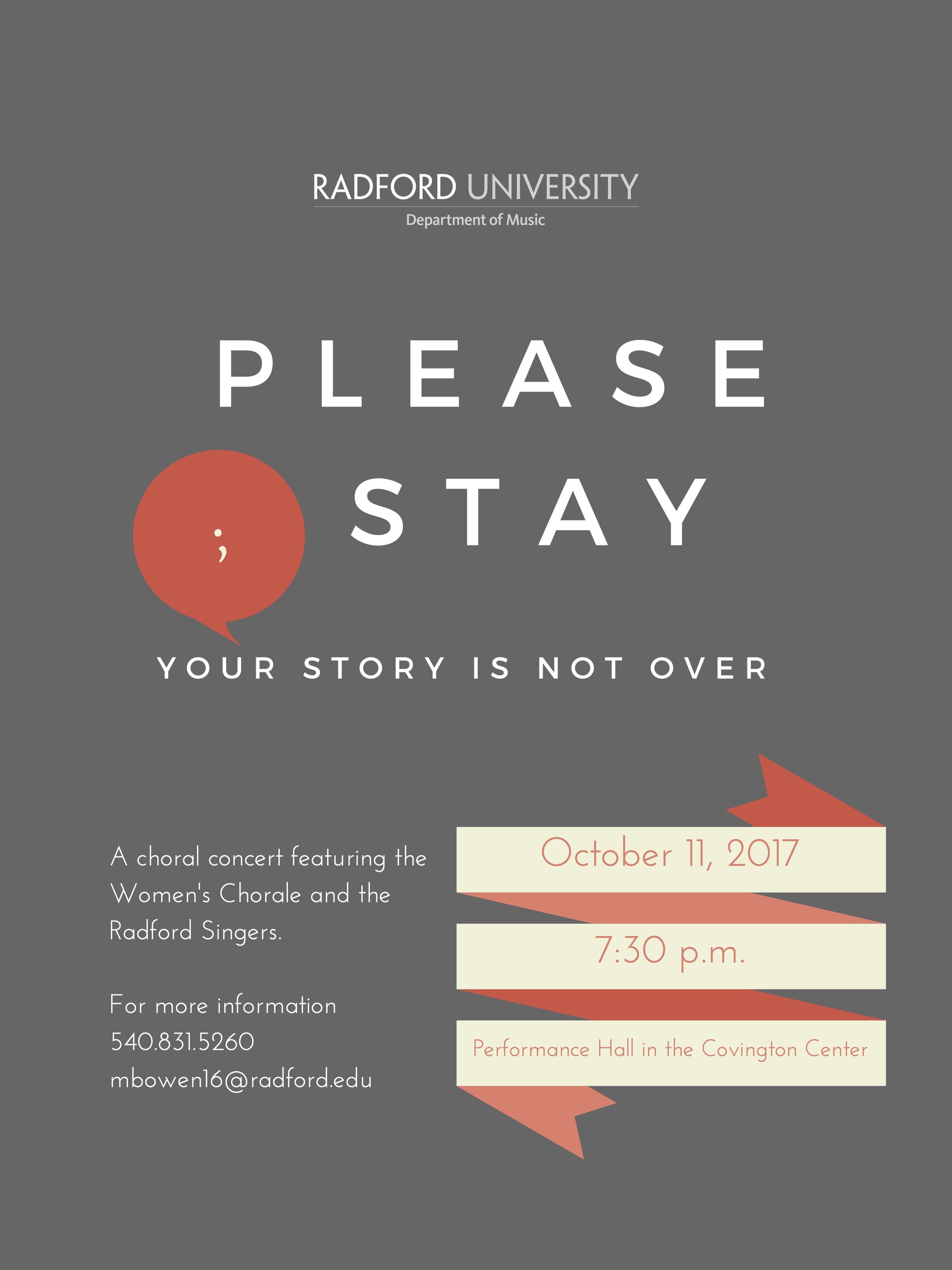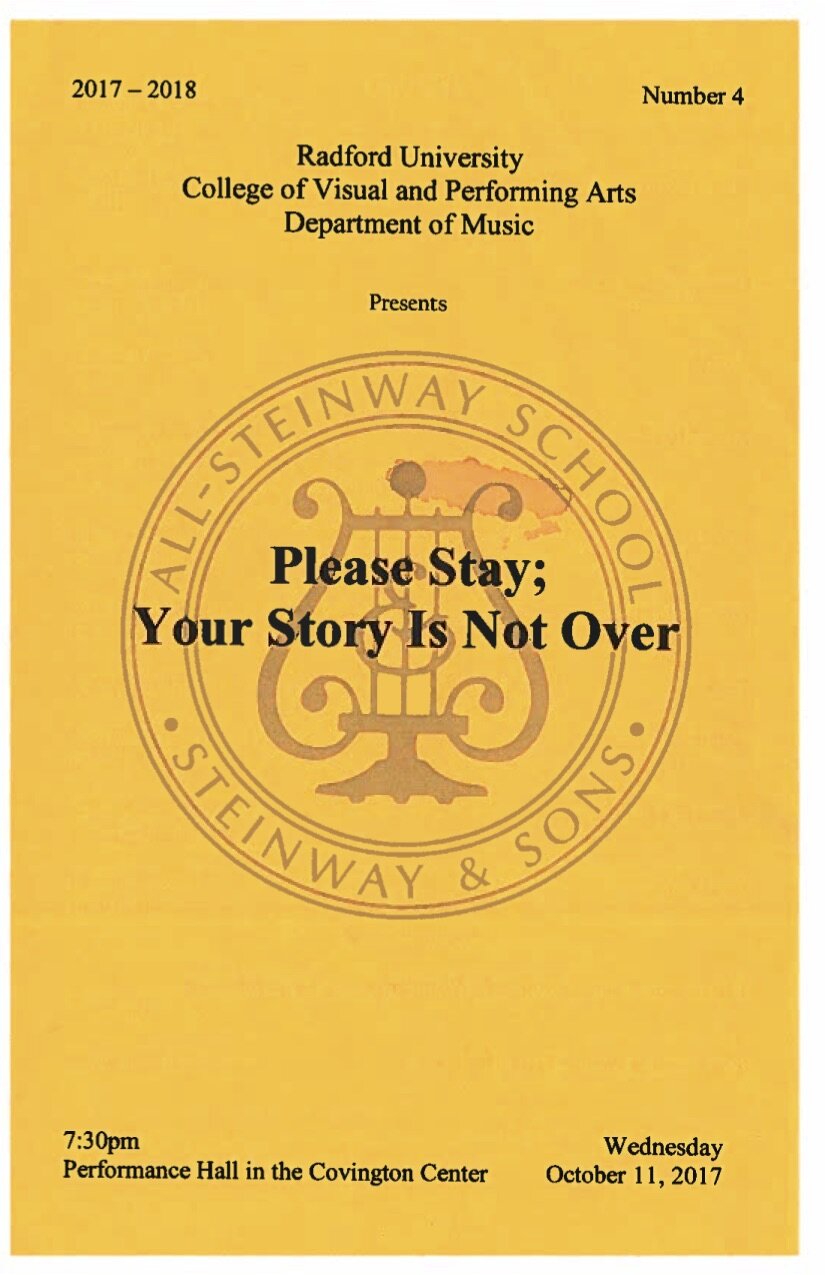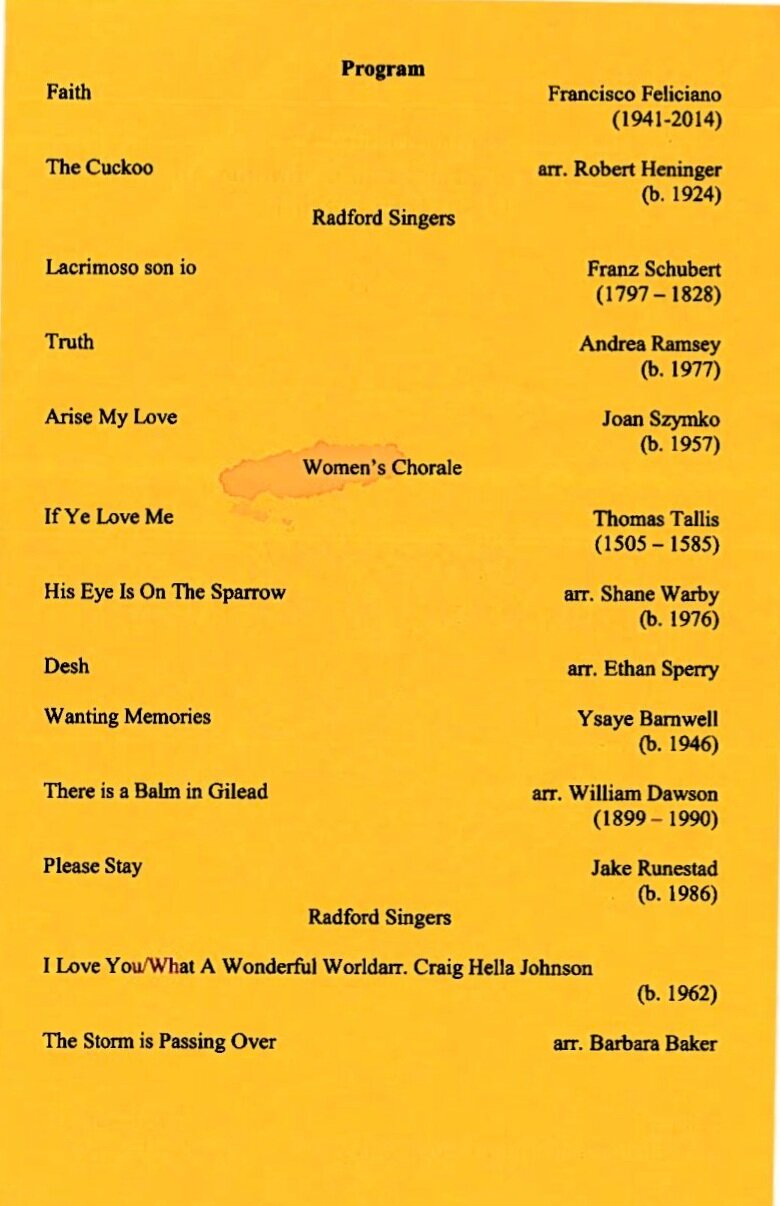Click here to see the entire program with texts and notes.
I try to give the audience a bit of background for each concert so they can understand some of our journey through each theme. Below is my statement from the night of the concert, October 11, 2017.
“In 2011, Jay Asher wrote a book that, earlier this year, became a Netflix hit show called “13 Reasons Why”. It traces the story of a young woman who commits suicide. There has been a lot of controversy about both the book and the show, with critics saying it causes suicide ideation. In 2015, there were 44,000 suicides in the United States, twice the rate of homicides. Suicide is the 11th leading cause of death in the United States and the 3rd leading cause of death for young people aged 15 to 24. Having been a teacher for 17 years, I’ve seen a lot of young people really struggle, be it because of family dynamics, economic circumstances, bullying, or mental health issues. And I wanted to do something. I wanted to shine a light on this murky, scary issue – to name it – to offer our version -‘13 Reasons Why Not.’ So tonight, we present “Please Stay; Your Story Is Not Over.”
In discussions with the singers about this concert, they were emphatic about including the spectrum of emotions one experiences, to acknowledge that everything is not always sunshine and rainbows. It is easy to sweep negative emotions under the rug because they make us uncomfortable. When people know someone who has completed suicide, they almost always say “I didn’t know what to do.” There are things we can do in a concert setting and things we can’t. We can highlight emotions, we can tell stories, we can educate, we can entertain. But only you can make a difference. This is just the beginning of the conversation.
There are many resources to help whether you are the one in crisis or someone you love is. If you know a loved one who is in crisis, ask questions and listen. Don’t be dismissive. We often respond to folks who reach out to us with “you’re being dramatic, you’ll get over it.” It’s better to listen and help others express their continuum of emotions - that life is sometimes hard, and ‘yes, you are going through a hard time, and yes, this is awful. But this is not the end.’
Another way you can help is to make a list of people the person in crisis can call, day or night: family member, doctor, school counselor, Minister, friend - include the national suicide prevention lifeline number, and have them keep it in their wallet. There are so many organizations offering help: you can find a list of potential warning signs or ways to make your home a safer environment, even talking points on how to start the conversation. Organizations with all sorts of knowledge, like the Suicide Prevention Center, the non-profits To Write Love On Her Arms, or the American Foundation for Suicide Prevention. Inside your program is a card, conveniently wallet-sized, with the National Suicide Prevention Lifeline on it. Please take one. Take several. There are extra cards at the exit. Share them with someone who is struggling.
Everyone has difficult times. Most folks bounce back. Unfortunately, not everyone does. So say something. Ask ‘what’s wrong? How can I help?’ Ask them outright ‘are you thinking about hurting yourself?’ Everyone wants someone to ask, someone to care. Take them seriously. Acknowledge their courage for telling you their truth. This is just a starting point, we are raising the subject because it is important. Have the conversation now, while you can. Our future is in this auditorium tonight.
If you are in crisis, please talk to someone you trust or call the National Suicide Prevention Lifeline, there’s a card in your program, or visit suicidepreventionlifeline.org.
You are not alone.
You are enough.
You are loved.
Please stay; your story is not over.
”



